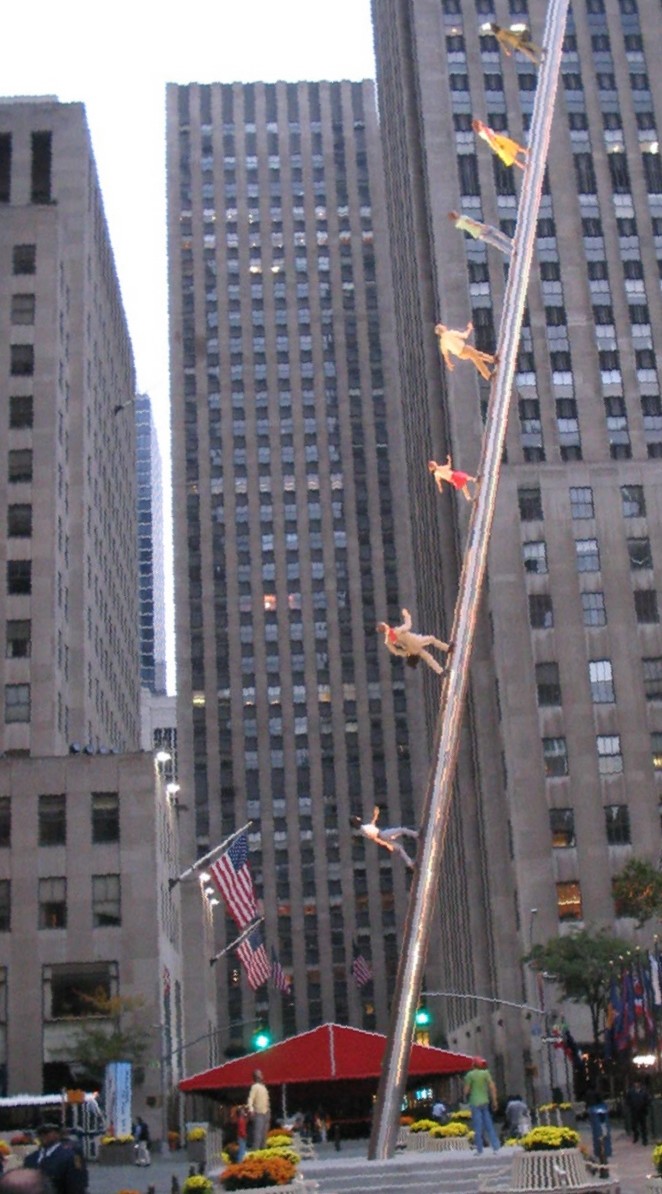

Genesis 26-28
(Jacob's Ladder)
January 8th
Please refer to one or more Bible versions of your choice to read this section. For your convenience, we have provided six links below, each of which takes you directly to today's chapters in a specific version:
Bible Gateway
Key Verses
Isaac answered, “Your brother came and deceived me. He has taken away your blessing. Summary of Chapters
At first glance, these chapters might seem like a repeat from yesterday’s group. The head of a family misleads a king by saying that his wife is his sister and has a dispute with other tribes over the ownership of water wells. Also, one son tricks another to get an inheritance.
Then he dreamed, and behold, a ladder was set up on the earth, and its top reached to heaven; and there the angels of God were ascending and descending on it.
Jacob saw God standing above the ladder (in some translations called a stairway) and heard him promise to deliver to Jacob a wealth of land and descendants, just as he had to his father Isaac and grandfather Abraham. In gratitude, Jacob committed himself to God and rededicated the place where he slept as Bethel (House of God). Reflection and Application
One take-away for us from this passage is that when something feels wrong don’t do it. That feeling is usually an indication from God that our plans are not right. Jacob knew it was wrong to deceive Isaac to get the final blessing, but he did it anyway.
Maybe we mistakenly expect each of our Biblical heroes to be a perfect embodiment of truth and justice, just like the character Atticus Finch in the Harper Lee novel To Kill a Mockingbird. Finch was a humble lawyer who stood up to the prejudiced people in Maycomb, Alabama in a story that takes place in the first half of the 20th century. He sought to ensure that an innocent black man received justice and was not subject to a lynch mob. Finch did not have to deceive anyone to achieve his goals and appeared to the reader to be flawless.
We are climbing Jacob's ladder
Questions and Prayers for Further Reflection
Looking Ahead
Tomorrow's reading: Genesis 29-31 (Jacob Takes a Wife+)
Comments and Questions
Genesis 26-28 (New Revised Standard Version - NRSV)
Genesis 26-28 (King James Version - KJV)
Genesis 26-28 (New International Version - NIV)
Genesis 26-28 (The Message - MSG)
US Conference of Catholic Bishops
Genesis 26 (New American Bible - NAB) (click the "next chapter" link on the site for chapters 27-28)
British Bible Society
Genesis 26 (Good News Bible - GNB) (click next for chapter 27-28)
- Genesis 27:35 (GNB)
But this time, the head of the family is Isaac, the son of Abraham, who had the encounter with the king and had to resolve differences over wells. The two brothers are the same as the ones in the previous chapters: Esau and Jacob. This time they are older but Jacob deceives again and obtains his father’s important final blessing before death, which means the transfer of the birthright to Jacob is irrevocable.
In the blessing, Isaac declares to Jacob (thinking it’s Esau) that he will live a life of abundance and other people will serve him. When Esau discovers what had happened he vows to kill Jacob, so Jacob fled towards the land of his mother’s family. At a resting place on his journey, Jacob lays his head down on a rock and had a dream in which he saw a stairway to heaven:
- Genesis 28:12 (KJV)
Meanwhile, Esau realized that his parents didn’t like the tribes from which his first two wives had come, so he married a third woman, but this time from the family of his uncle Ishmael.
When we read these stories about Jacob and also acknowledge that he is one of the fathers of our faith, we might have several reactions:
Atticus Finch is a fictional character, but our lives consist of the realities of highs and lows and successes and failures. We know that we don't always stand up and do the right thing. Yet God chooses us for specific purposes because he knows what he can do with us, despite our weaknesses and errors – and perhaps even because of these deficiencies.
It’s also important to acknowledge that each of these Biblical men demonstrated faithful devotion to God. For instance, Abraham and Isaac moved when God told them to move and stayed when he told them to stay.
When Jacob heard God in his dream he immediately devoted himself and a tenth of his future earnings to God. Jacob was a changed man after this vision, although still not perfect. Would you guess that he abandoned his fraudulent ways after his experiences to this point? We shall have to continue reading to find out.
Jacob’s vision in chapter 28 was the inspiration for the traditional Gospel song, “Jacob’s Ladder.” There have been many variations of this song over the years. I like Bruce Springsteen's rendition with a horn section and a chorus backing up his raspy voice on "The Seeger Sessions" and "Live in Dublin." Springsteen's production adheres to Pete Seeger's variation on the lyrics, and includes a riff from "Down by the River Side":
We are climbing Jacob's ladder
We are climbing Jacob's ladder
Yeah we're brothers, sisters, all
Related Questions
Recommended Prayer
Father, please help us to be aware of your signals to us, particularly when you are nudging us to a different direction.
Suggested Prayer Concerns
Parents
Please send any thoughts or comments to our Comments page or email to the author at
ted@listeningforGod.org
or share your comments or questions via the Listening for God Twitter account http://www.twitter.com/listeningforgod